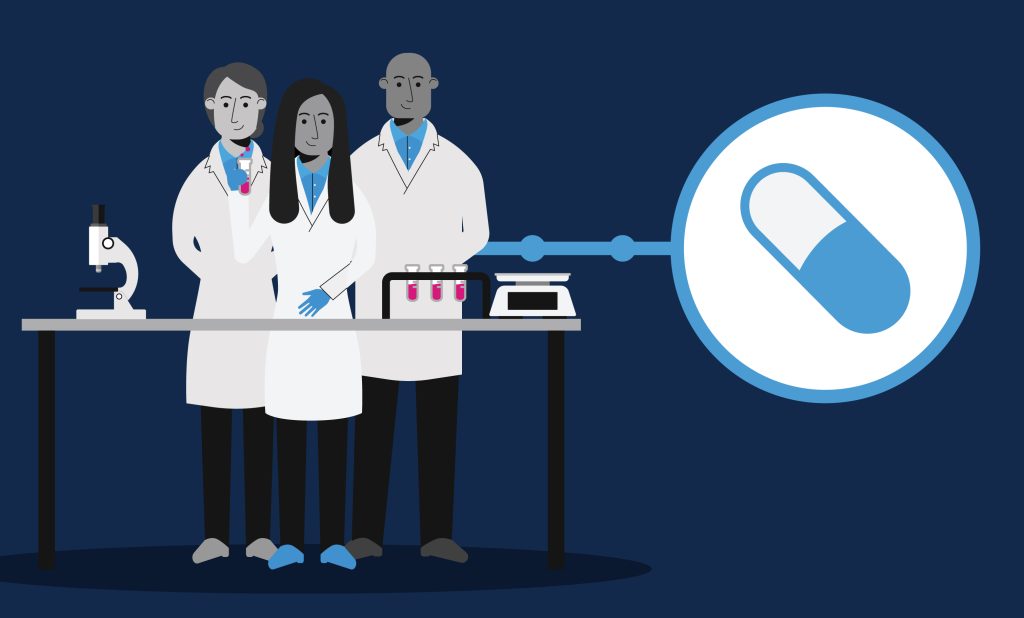Therapeutics Examples
Research translation in the context of therapeutics
In the case of therapeutics, research translation refers to a ‘bench-to-bedside’ continuum wherein the overarching aim is to translate novel scientific discoveries into new medicines, devices, and treatment options for patients. Researchers at academic institutions are essential catalysts who generate novel therapeutic concepts and scientific discoveries. Successfully advancing these ideas or findings through the bench-to-bedside continuum requires having access to additional resources to advance these concepts.

Launched in 2021, the UNC AdvanTx Initiative supports translation of therapeutic-related research projects. This initiative led to the creation of a centralized team of experts with industrial experience who provide researchers drug development expertise and access to campus-wide translational resources, including funding, capabilities, drug development technologies, and potential collaborators.
The AdvanTx team reviewed 60 projects within the first 12 months of its creation and continues to review new projects as they emerge. To date, engagement with the team has led to numerous projects with faculty or staff as team members receiving significant translational funding to support development of projects. The team also engages with potential external corporate partners and investment groups to expand university resources and capabilities, obtain feedback about commercial opportunities, and garner translational support. The initiative is an example of research translation in action for Carolina scientists.

